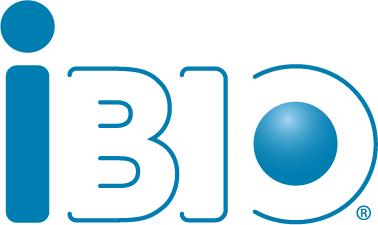ADVOCACY
iBIO educates policymakers about the value the life sciences industry provides for patients and Illinois’ economy. iBIO develops federal and state priorities based on member company engagement and develops strategies to educate and inform decision-makers as the voice of the industry broadly.The Life Sciences is a complex, highly regulated industry. At iBIO, we diligently advocate for an industry that is vital to the Illinois economy. Our membership cares deeply about science based regulation that rewards innovation, increases patient safety and accessibility, and fosters a business climate conducive to an innovation-based economy.
We drive industry growth by creating a forum for the life sciences community to come together, educating the public and policy makers, influencing public policy and advancing the economic interests of the community at the local, state, and federal levels.
ADVOCACY CENTER
Advocacy news and issues impacting the community
TOOLKIT
A comprehensive library of advocacy materials
iBIO promotes thoughtful legislative and regulatory solutions that allow our member companies to research, develop, and commercialize breakthrough therapies and cures, and to ensure patients have affordable access to those new treatments. Likewise, iBIO opposes policies that threaten patient access, limit innovation, or adversely impact the Illinois life sciences industry’s competitiveness in the global economy.
OUR LEGISLATIVE PRIORITIES
The Value of Innovation
iBIO works closely with our national partners to educate and engage policymakers, payers, providers, patients and all other stakeholders in the ongoing conversation on the value of innovative medicines and therapies.
Supporting Research
National Institute of Health funding is critical to the Illinois life sciences community. Public investment in the NIH has helped establish the United States as a global leader in medical research and innovation. With over $800 million in 2017, Illinois is one of the top states receiving NIH funding, this funding is critical to our startup ecosystem. Since 2003 funding levels for the NIH have consistently remained flat and faced cuts as a result of sequestration. Taking into account the rising cost of conducting medical research, net NIH funding has actually decreased substantially. We support increased investment in NIH.
Adequate FDA Funding
By some estimates, the US Food and Drug Administration has regulatory domain over 25% of the US Gross Domestic Product. Public faith in the FDA’s oversight is critical to development of biological products in medicine, food and agriculture. The FDA needs to be funded at appropriate levels to exercise this oversight and to retain skilled scientists and administrators in the department. iBIO has in the past and will continue to advocate that the federal government support the FDA with a budget adequate to the agency’s needs.
Intellectual Property & Patent Reform
Intellectual property is the lifeblood of the life sciences industry. Strong patents, and an efficient, predictable, and objective patent system, are critical to ensuring a steady stream of capital to life sciences companies developing innovative medicines and other innovative therapies.
iBIO supports the STRONGER Patents Act of 2017 and will continue to advocate for passage of legislation to curb abusive patent practices, while strengthening the ability of patent owners to defend their inventions and businesses against infringement.
Freedom from Trade Barriers
iBIO supports ensuring that export markets remain clear and unobstructed by unreasonable trade barriers. This applies to products of biotechnology research, whether they are food products or biotech medical products.
Medicare
iBIO supports protecting Part B and Part D benefits to ensure patients have access to the treatments they need. iBIO supports the continued “non-interference” policy toward government oversight of Part D pricing and opposes government mandates that would reduce prices without demonstrated cost savings and positive health outcomes.
340B Drug Discount Program
The 340B Drug Discount Program is an important program designed to help uninsured indigent patients gain greater access to prescription medicines. However, exponential growth, significant rates of non-compliance revealed in audits, and a government report of lax oversight underscore the need to modernize this program to ensure it continues to serve patients in need. We support additional review and oversight to ensure the 340B program continues to operate as intended.
Drug Importation
Consistent with the positions asserted by HHS Secretaries under both Democratic and Republican administrations, iBIO strongly opposes importation of pharmaceuticals from foreign countries.
Medical Device Tax
iBIO supports the permanent repeal of the 2.3% excise tax on medical devices that was included in the Affordable Care Act. This tax, levied against the revenues from the sale of devices, even in the cases of developing companies not yet profitable, has by various estimates cost the U.S. 30,000-40,000 jobs.
Opioid Epidemic
iBIO is deeply committed to working collectively to prevent the misuse, abuse and diversion of prescription medicines. iBIO supports a balanced approach that ensures appropriate treatment of pain while also addressing this critical public health challenge.
Drug Pricing & Transparency
iBIO is committed to working with lawmakers, physicians, patients and other healthcare stakeholders to address the affordability of medicines. We believe that any legislative effort to address the affordability of medicines must be patient centered, holistic, and promote patient access to treatments and cures We oppose legislation that ignores the value of innovative therapies for individual patients and the importance of timely access to those treatments, interfere with the market-based ecosystem for the U.S. healthcare sector, and place undue burden on small, pre-commercial life sciences companies.
Out of Pocket Expenses
iBIO supports policies that ensure patients have access to the treatments they need, including the adoption of caps for out-of-pocket expenses and the continuation of co-pay assistance programs in Illinois.
STATE ECONOMIC PRIORITIES
Promoting an Innovation Based Ecosystem
iBIO believes a strong and consistent commitment by our government partners is critical to maintaining an ecosystem for industry growth in Illinois. When government, industry, and academia work together, our community thrives. iBIO supports state-based policies that support the growth of the life sciences industry and expansion of the infrastructure needed for a robust startup community in Illinois. iBIO does not support, programs, regulations, and tax measures which are considered unusually burdensome by firms located and/or doing business in Illinois.
R&D Tax Credit
Illinois is one of the most active states for R&D in the nation, ranking eighth in overall R&D, academic R&D, and business R&D. However, despite the state’s high volume of activity, the R&D landscape in Illinois has grown less quickly than in many of its peer states. Illinois has allowed the R&D Tax credit to sunset four times in the past 14 years, limiting the state’s competitiveness compared with many of its peer states.
iBIO supports the permanent extension of the R&D Tax Credit and updated to 50 percent of three-year average spend.
Increase Access to Capital
Illinois must address the lack of funding for early stage life sciences companies to remain a competitive location for company growth and relocations. With federal funding dollars more difficult to attract, and venture capital investment looking for later-stage deals, seed capital is limited and highly competitive.
iBIO supports the growth of current successful access to capital programs including the Angel Investment Tax Credit and the Illinois Growth and Innovation Fund. iBIO supports additional state incentive programs like SBIR/STTR Matching.
Infrastructure
For emerging life sciences startups in Illinois, the availability of quality laboratory space is one of the most crucial components for continued life sciences industry growth, innovation and development, and yet it is Illinois’ scarcest resource. iBIO supports policy and investment to increase the availability of quality laboratory space.
Workforce Development
For the life sciences industry, which stands as the most research and development intensive sector of our economy, the importance of talent is well recognized—and the challenges are particularly acute. Industry, State Government and academia need to work in collaboration to identify skill training and education needs to support the growth of the community. iBIO supports programs and investment for Workforce Development in the Life Sciences Industry.
Marketing Illinois
Illinois historically has been successful in attracting the establishment of life sciences headquarters and relocations for foreign and domestic companies. iBIO supports investment and marketing programs to raise Illinois profile, including, attracting life sciences international trade conventions to Illinois like the Annual International BIO Convention.
2019 STATE OF THE INDUSTRY
The 2019 iBIO State of the State report benchmarks the recent growth of the community, identifies key trends, and provides a road map for how we can continue to expand life sciences innovation in Illinois.

FIND YOUR LEGISLATOR
Use the district finding to retrieve a list of your representative with contact information
